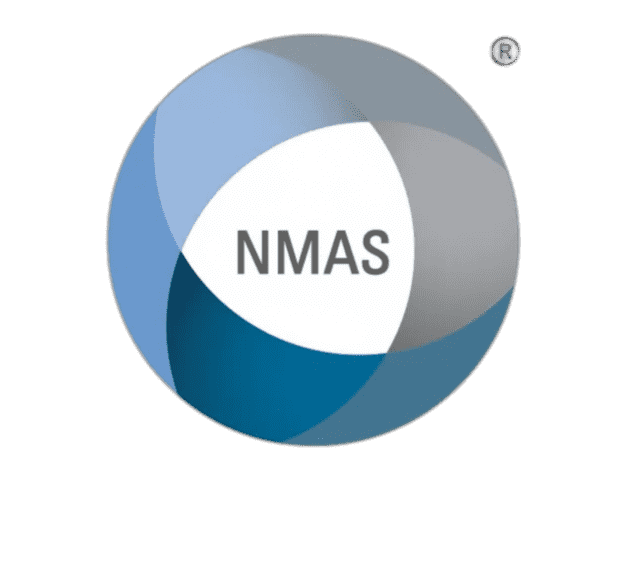Ms James, a long-term Comcare compensation claimant since 2014, suffers from severe PTSD, severe anxiety, and adjustment disorder with anxious mood due to a workplace incident that led to severe psychological trauma. Since 2018, Ms James has been receiving weekly to fortnightly sessions with the same psychologist, focusing on Cognitive Behavioural Therapy (CBT) and Eye Movement Desensitisation and Reprocessing (EMDR). Despite these efforts, there was little improvement in her symptoms, and she continued to rely heavily on a significant volume of antidepressant and anti-anxiety medication.
During the initial needs assessment conducted by ELEV8 Consulting, it was noted that Ms James’s Depression, Anxiety, and Stress Scale (DASS) scores were extremely severe, with each category scoring 36. She exhibited constant physical symptoms of anxiety, such as trembling hands and shaking legs, which were visible during meetings. Ms James reported extreme distress at the thought of returning to work, often experiencing suicidal thoughts and feeling that she would no longer be a burden on her family if she were gone.
Ms James’s daily life was severely impacted by her condition. She could no longer engage in hobbies that once brought her joy, such as sewing. Additionally, Ms James was consuming alcohol excessively, drinking 1-2 casks of wine per day, and smoking up to 10 cigarettes daily to cope with her anxiety and stress.

Intervention and Program Participation
ELEV8 Consulting engaged with Ms James in August 2023, aiming to support her through non-return-to-work activities. Initial efforts included setting home-based activities, small goal-setting, and exploring volunteer and work trial options. However, these attempts led to extreme distress and were not successful.
In a case conference with Ms James’s psychologist in March 2024, it was determined that a stronger focus on psychosocial goals, daily function, and physical health was necessary. The psychologist endorsed the implementation of the Vitality Voyage program, which was supported by ELEV8 Consulting and subsequently approved by the Rehab Authority. The program commenced in April 2024, maintaining Ms James’s existing treatment modalities and frequencies.
The Vitality Voyage program incorporated weekly themes, including sleep hygiene, energy management, enhancing wellbeing and mindfulness, behavioural activation, and habit stacking. Activities included virtual weekly exercise sessions, accompanied walks, regular self-guided walking, yoga, and light weight training.
Outcomes
Ms James’s post-program DASS scores showed significant improvements:
- Depression: Dropped from 36 to 22 (Severe Category)
- Anxiety: Dropped from 36 to 16 (Moderate Category)
- Stress: Dropped from 36 to 22 (Moderate Category)
Comparing Ms James’s pre-program and post-program WHODAS assessments also showed significant results:
Understanding and Communicating:
- Pre-Program: Mostly severe issues, with an overall score of 62.50%.
- Post-Program: Improved to moderate or mild in all aspects, reducing to 45.83%.
- Interpretation: Significant improvement in cognitive and communicative functions, suggesting effective interventions or adaptations.
Getting Around:
- Pre-Program: Major issues primarily with getting out of the home, with a domain score of 15%.
- Post-Program: Improvements noted, especially in walking long distances and standing, with the score increasing to 25%.
- Interpretation: Mobility has improved, though challenges remain with getting out of the home. Continued physical therapy or mobility aids might be beneficial.
Self-Care:
- Pre-Program: Extreme difficulty in staying by oneself and severe in eating, with a domain score of 62.50%.
- Post-Program: Some issues remain, such as staying by oneself; however, improvements in other areas have brought the score down to 50%.
- Interpretation: Self-care capabilities have improved moderately. Ongoing support and possibly adaptive equipment could help further.
Getting Along with People:
- Pre-Program: Severe difficulties in making new friends and dealing with unknown people, with a score of 70%.
- Post-Program: Slight improvement, reducing to 60%. Making new friends remains a significant challenge.
- Interpretation: Some improvement in social interactions, though difficulties in forming new friendships suggest a need for focused social skills training or therapeutic interventions.
Life Activities:
- Pre-Program: Extreme difficulties with household and work tasks, with a score of 84.38%.
- Post-Program: Slight reduction to 81.25%, but significant challenges persist, especially in work-related tasks.
- Interpretation: Minimal change; continued severe restrictions suggest that current strategies may need reassessment or that Ms James may benefit from more targeted occupational therapy.
Participation in Society:
- Pre-Program: Significant barriers and challenges with a score of 75%.
- Post-Program: Slight reduction to 59.38%, showing some improvement, especially in dealing with societal barriers and dignity issues.
- Interpretation: Ms James shows increased ability to engage in societal activities, though severe issues remain in how her health affects her emotional and financial well-being.
Overall Functioning:
- Pre-Program: A score of 64.58%.
- Post-Program: Reduced to 56.25%.
- Interpretation: Overall, Ms James’s functioning has improved across several domains. The reduced number of days she was totally unable to work (from 30 to 19 days) and the days she reduced activities (from 0 to 11 days) are positive signs of increased daily functioning and capacity.
In addition to the improvement in DASS and WHODAS scores, Ms James reported several positive changes:
- She was able to complete daily activities around the house and provide for her family, which she previously felt incapable of doing.
- Ms James successfully engaged in weekly sewing tasks and projects, activities she had been too anxious to start before the program.
- There was a marked reduction in her daily shaking, a symptom that had persisted for over five years.
Conclusion
The Vitality Voyage program significantly enhanced Ms James’s mental well-being, resilience, and overall quality of life. Despite ongoing challenges, the program’s structured and supportive approach enabled Ms James to manage her symptoms better, improve her daily functioning, and re-engage in meaningful activities. This case study highlights the importance of tailored psychosocial interventions in the rehabilitation process for individuals with severe psychological trauma.








